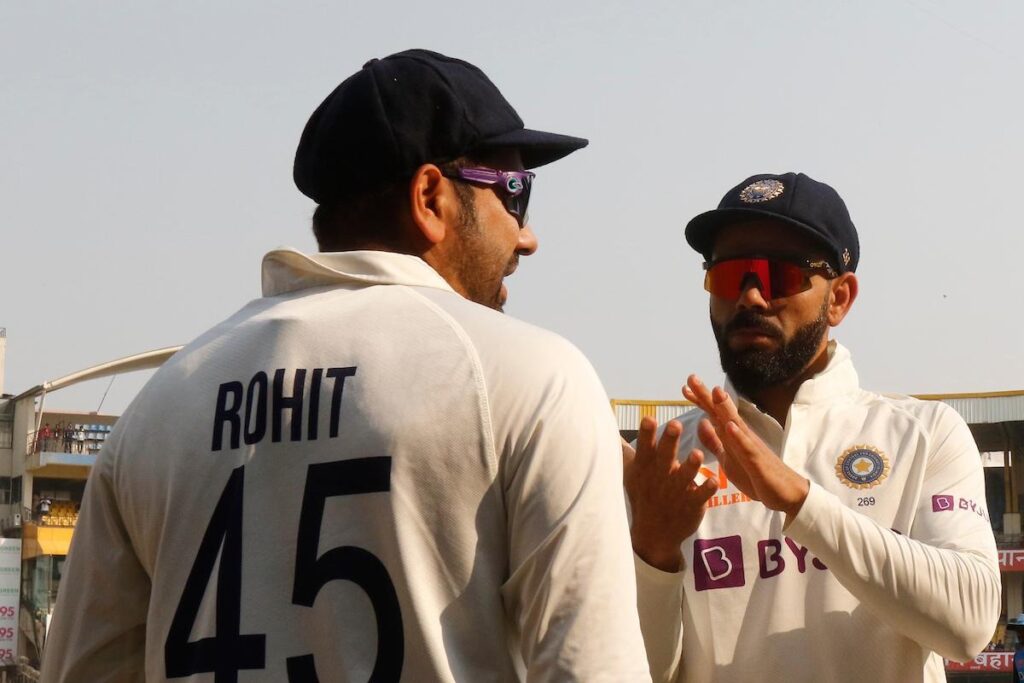
PV Sindhu, one of India’s great champions, had lost her eighth final in a row in 2019 when I managed to speak to her. Things between her and Pullela Gopichand, her coach, had not yet gone south, and Gopi was with her when I called. Sindhu, clearly, was distraught. I could hear her howl on the phone and her words, “I need to get over this. People think I can’t play under pressure. What they forget is that winning a semi-final under pressure is equally important.” Sindhu has since gone on to win the World Championship, and make history for India.
To say that Rohit Sharma and his boys aren’t good enough under pressure is wrong. The Gabba in 2021 was huge pressure, as was Melbourne weeks earlier. To be bowled out for 36 and have the world’s eyes on you in the next outing can’t be easy. India dealt with it, and did so successfully under Ajinkya Rahane.
So what is it about knockout games in ICC competitions that we have faltered time and again? Do we need acceptance, rather than running away from the enormity of these contests? Will that help to stay grounded and embrace pressure? Virat Kohli, then captain, was asked on the eve of the first World Test Championship (WTC) final if it was the biggest game of his life. His answer was routine. Most captains would say what he did. That it was yet another game, every game is important, and that it is all part of a process. Surely he did not believe what he said. It wasn’t a routine Test match. It wasn’t the first of a six-match series. It was the big final, and maybe it needed an acceptance of sorts from Kohli.
Sachin Tendulkar has a very nice thing to say about pressure. “There will always be pressure,” he says, before going on to add, “It is how you deal with it. Will you let it get on top of your head and push you down, or will you ensure that it is behind you to propel you forward?” Could accepting the importance of the occasion have helped Kohli? Accept that it was a big match. Accept that it could change lives. Accept that it was part of your legacy as captain, good and bad.
Rohit, for example, hasn’t yet tasted success as captain at an ICC event. The final frontier remains to be conquered. While there is no dearth of hunger, he needs to learn from past failures and embrace them, rather than trying not to speak about it. There is no harm in saying that the World T20 in Australia was a huge opportunity for him and the team to script history. That it was a platform he was much keen to make his own. Sport, as we all know, is the only platform that results in one failing in public. Fail before a billion-plus eyeballs. But it is also the only platform that allows a performer to come back and win in public. There is always a Melbourne after an Adelaide, and that’s what Rohit needs to remember and prepare for.
Tendulkar had to wait for 22 years to get his hands on a World Cup. What could have been really painful for him was that India won the inaugural World T20 in 2007 after he had chosen not to be a part of the side. In a career like no other, not winning a World Cup was painful. Sachin persevered. With help from friends and family, he brushed off the despair of 2007, and kept dreaming of the Wankhede as he trained hard every single day.
Preparation, as he always says, was the key. The same is true for Rohit and his team. He has come close a few times. Just like Tendulkar in 2003, when India lost in the final, he already has multiple hundreds in World Cups. And yet, he and the team have fallen short. There is no doubt that life is testing Rohit and this team. Pushing them harder. Little mistakes have been committed at key moments, and the team as a whole has suffered.
They haven’t yet played a near-perfect knockout game, and that’s what it is all about. But that’s the reality everywhere, isn’t it? The human race keeps pushing the bar in whatever it does. Faced with Covid-19, scientists discovered vaccines in a year. Yes, the vaccines aren’t perfect and the quest to get better continues. Dehumanisation of certain races continues, and we strive to push against inequality in sport. That’s how it always is, but that doesn’t mean we don’t have a chance. We do, and that’s why we fight.
Rohit and Kohli will too. The quest continues for them and for India.



